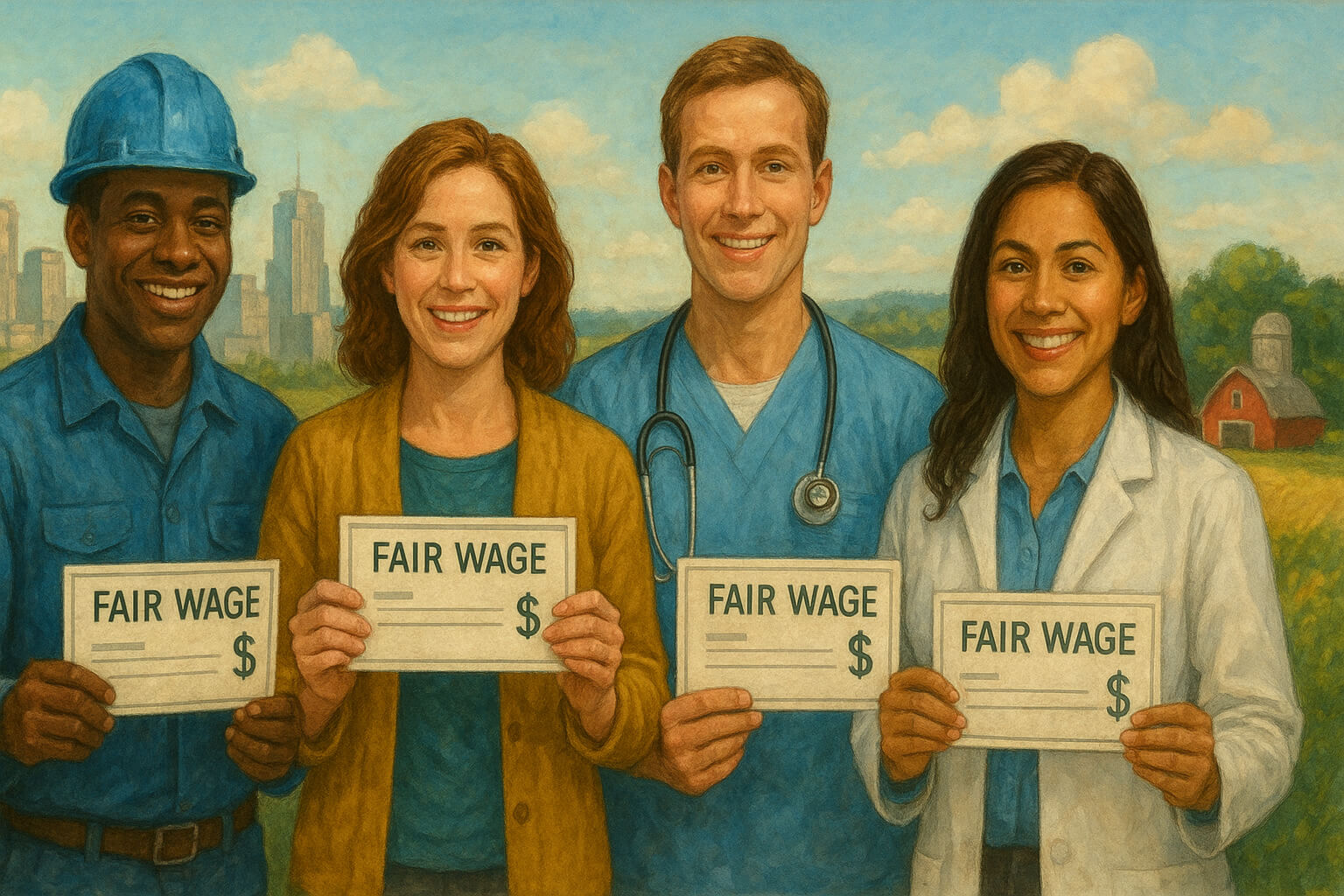Ensuring fair wages is one of the most effective ways to break the cycle of poverty. Around the world, millions of individuals are employed full-time yet continue to struggle to meet their most basic needs. This is because their wages fall below the cost of living, leaving them unable to afford secure housing, nutritious food, healthcare, or quality education.
Fair wages empower families to live with dignity, strengthen local and national economies, and create opportunities for future generations. More than just financial compensation, fair wages represent a commitment to equity, respect for labor, and social justice.
Why Fair Wages Matter
A fair wage ensures workers can afford life’s essentials without having to sacrifice one necessity for another. It means that someone working 40 hours a week can provide food for their family, cover rent, send their children to school, and still plan for emergencies.
Research and real-world evidence show that fair wages generate ripple effects across society:
- Improved quality of life: Families with adequate earnings can invest in better nutrition, healthcare, and education, which in turn strengthens long-term human development.
- Increased productivity and morale: Fairly compensated workers are more engaged, motivated, and loyal, which reduces turnover and benefits employers.
- Economic stability: With more disposable income, workers spend more locally, fueling small businesses and strengthening community growth.
This issue is closely tied to income inequality, which continues to widen globally. Closing the wage gap is a direct step toward narrowing inequality and building inclusive economies.
The Connection Between Fair Wages and Poverty Reduction
The relationship between wages and poverty is straightforward: without adequate income, workers cannot escape poverty, regardless of how many hours they work. In many regions, the working poor make up a significant percentage of the labor force.
- Food insecurity: Low wages often mean families cannot afford balanced meals. As explored in food insecurity, this leads to long-term health problems, reduced academic performance in children, and perpetuation of poverty across generations.
- Community growth: When workers are paid fairly, they reinvest in their communities—supporting local businesses, schools, and services. This mirrors the principles of fair trade practices, which emphasize not just ethical wages but also stronger, more resilient economies worldwide.
- Intergenerational impact: Families earning fair wages are more likely to break the poverty cycle by ensuring that their children complete schooling and have greater opportunities in adulthood.
Barriers to Fair Wages
Despite overwhelming evidence of the benefits, systemic barriers continue to block progress:
- Corporate resistance: Some employers prioritize short-term profit margins over long-term sustainability, fearing that higher wages will reduce competitiveness.
- Global competition: In a highly globalized economy, businesses often outsource to countries with weaker wage standards, creating a “race to the bottom” that undercuts workers.
- Weak labor protections: In many developing economies, laws do not guarantee minimum wages or living wage standards, leaving workers vulnerable to exploitation.
- Rise of informal and gig work: Increasing numbers of workers earn income through informal markets or gig platforms, where wage protections are often absent.
These barriers perpetuate cycles of inequality, highlighting the urgency for stronger wage policies and labor rights enforcement.
Steps Toward Ensuring Fair Wages
Overcoming these barriers requires coordinated action from governments, businesses, nonprofits, and workers:
- Policy reforms: Governments should align minimum wages with the real cost of living and strengthen enforcement against wage theft and exploitative practices.
- Corporate responsibility: Companies can embrace ethical labor standards, ensuring their supply chains mirror fair trade models that value workers’ dignity.
- Community support and advocacy: Nonprofits, unions, and grassroots groups play a vital role in educating workers about their rights, campaigning for change, and providing direct aid.
- Integrated poverty solutions: Fair wages amplify the impact of other measures such as social safety nets and women’s empowerment, both of which address structural inequalities.
Looking Ahead
- Fair wages are not merely about financial compensation—they are about human dignity, social equity, and opportunity. Ensuring that all workers receive fair pay reduces poverty, strengthens families, and builds resilient communities.
- The movement for fair wages must remain central in global poverty alleviation strategies, alongside education, healthcare, and empowerment programs. As explored in article on the impact of education on poverty reduction, wages and education together create powerful pathways out of poverty.
Final Thought
- Fair wages are a cornerstone of social justice. When societies ensure that every worker earns enough to live with dignity, they invest not just in individuals but in the prosperity of entire communities.
- Breaking the cycle of poverty is possible—but it requires placing fair wages at the heart of economic policy and community action.
